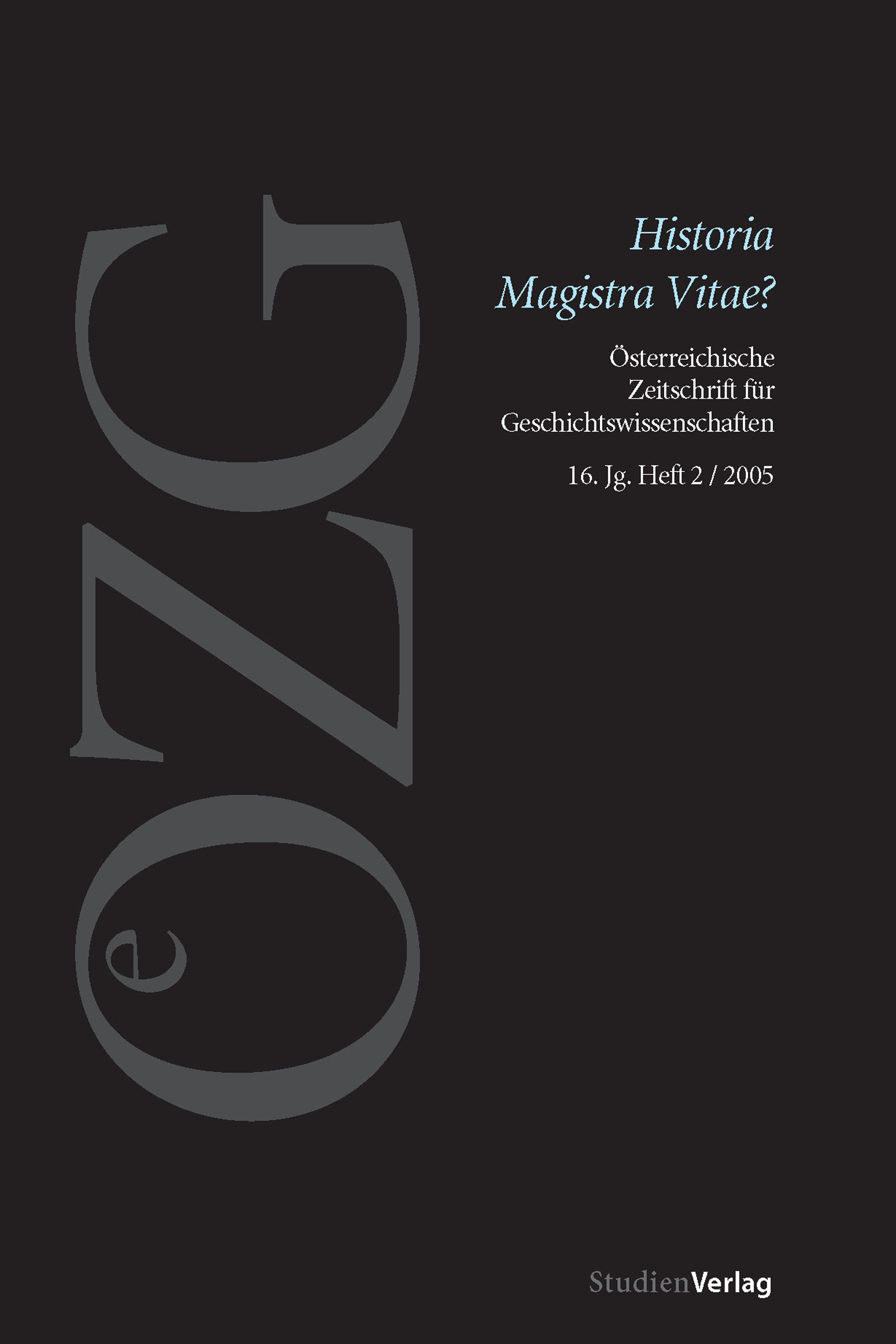Erinnern – Lernen – Geschichte. Sechzig Jahre nach 1945
DOI:
https://doi.org/10.25365/oezg-2005-16-2-5Abstract
From a west-German perspective an interpretation of the changes of the celebrations of the 8th of May, the anniversary of Germany’s capitulation in 1945, is given. The speech of Germany’s president, Richard von Weizsäcker, in 1985, thereby played an eminent role. The 8th of May was not further understood as a defeat, but as the liberation from Nazism: The article draws the attention on the differences of commemorative practises, for instance in East and West Germany. The article discusses three different uses of history: history as learning for the present, history as memory and the basis of collective identity, and history as the interest for ›the other‹. The article argues, that beyond memory it is necessary again to draw conclusions from history and to learn from it.


